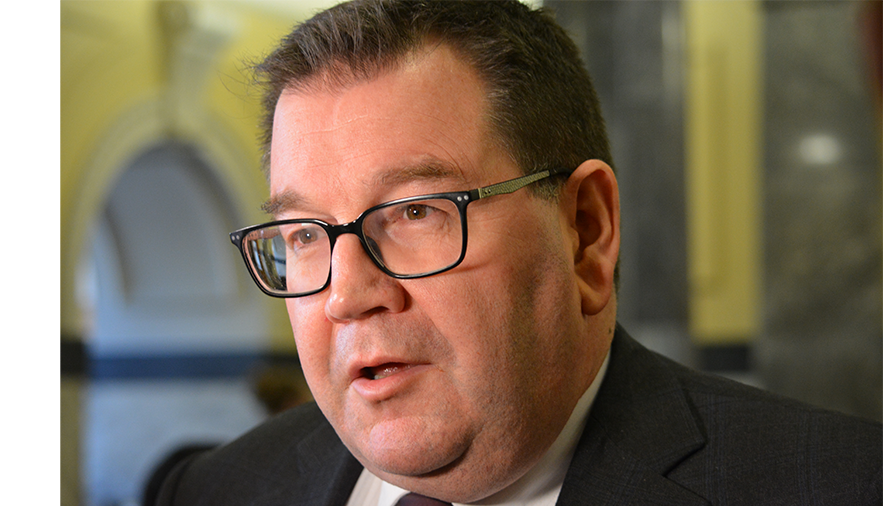Tax, inflation, co-governance all set to dominate political debate
ANALYSIS: Despite good economic reports, voters likely to worry about effect of inflation on pockets.
ANALYSIS: Despite good economic reports, voters likely to worry about effect of inflation on pockets.
As Parliament resumes sitting this week, the Government will face continued political attacks over cost-of-living increases.
This was given further credence last week with ASB predicting households could end up paying an extra $150 a week this year as inflation continued to bite and interest rates rose.
In return though, the Government might point to two reports released in the last week – one by the Treasury and the other by the IMF – that give its economic management through the Covid-19 pandemic a thumbs up.
The Treasury’s 2022 investment statement confirmed the government’s balance sheet was not in as bad a shape as many might think, given the impact of Covid. In fact, in the four years to the end of June 2021 the Government’s net worth had increased by $40 billion to reach $157b.
Net debt as a proportion of GDP was 19% before the pandemic struck and is now forecast to peak at 40.15% in 2022-23, but that is down from the Treasury’s initial forecast that it would go above 50%.
The IMF also forecasts net debt as a proportion of GDP will be 24.1% in 2024 compared with 27.7% in Canada, 44.6% in Australia, 80% in the Euro are, 98.7% in the United Kingdom and 103.3% in the United States. Both the UK and USA governments have more liabilities than assets and only five governments – Norway, the Czech Republic, Australia, Korea and Sweden – have higher net worth than New Zealand.
Meanwhile, in its latest report on the New Zealand economy the IMF recommended the Government cut the company tax rate of 28% and introduce a capital gains tax.
Rocket man
As NBR presenter Grant Walker says, there is more chance of him flying in Elon Musk’s next space mission than there is of the Government introducing a capital gains tax. Prime Minister Jacinda Ardern has ruled it out emphatically after it failed to fire as a policy for Labour in previous elections and Finance Minister Grant Robertson repeated that assurance last week.

Will National and Act, though, use the IMF report to argue the case this week for company tax rate cuts? It is a difficult argument to make, given the IMF links that suggestion to the introduction of a capital gains tax, as well as saying there was no need to cut the overall tax take.
Arguments about tax will last through from now until the election, with National continuing to push its proposal to raise the income thresholds at which marginal rates of tax apply.
It says that will help struggling households cope with rising costs. Last week’s ASB forecast reinforces that concern, although for low-income households National’s tax changes will do little to close a supposed $150 gap.
That is a point Labour is starting to push with more vigour, that low-to-middle income households will not enjoy significant income increases as a result of the change.
National’s finance spokesperson Nicola Willis says someone earning $55,000 a year will be $800 a year better off under the plan to adjust tax brackets for inflation.
“Letting kiwis keep more of what they earn would help insulate families from inflation and restore confidence to an economy that today is at risk of faltering,” Willis says.
Labour vulnerable
Labour is vulnerable to attacks over the ‘cost-of-living crisis, even if it can point to the IMF report and the Treasury investment statement showing the economy and government finances have so far survived the pandemic in good shape. It also argues rightly that it has increased incomes for many lower income households through benefit increases, changes to working for families’ tax credits and increases in the minimum wage.
But most voters – who face cost increases in excess of any increase in their incomes - are likely to be tone deaf to those arguments as they reach in their back pockets and find they have less disposable cash to spend. It continues to represent a big problem for Labour going into an election year and a political opportunity for National.
With less money to spend that also raises issues for those businesses – largely in hospitality – that depend on consumer spending. Relaxation of Covid-19 restrictions – including removing limits on outdoor gatherings – have come into effect, but will they make a difference?
As costs rise people do not have the same disposable income to spend and many remain wary about going out in a Covid world. And while indoor hospitality venues can now cater for 200 people under the red setting of the Covid-19 protection framework they still have to ensure customers are seated and physically separated.

Further changes take effect from midnight on April 4 when vaccine passes and mandates will be largely scrapped and people will no longer have to scan in.
It represents a brave new world for New Zealand, but not everyone is happy. Opposition parties appear to think the Government should just scrap all restrictions, with Act leader David Seymour saying it is time to get beyond the climate of fear.
People and businesses, though, will start to make individual choices about how much risk they are prepared to tolerate. Many people, for instance, are likely to want to still work from home and to minimise their social contact as much as possible. That might still mean for hospitality venues in central city districts that while business will pick up it might not be to the degree they hope.
Covid not going away
As well, new variants might emerge – a hybrid mix of Delta and Omicron already appears to be circulating elsewhere in the world – which prompt a return of some of the restrictions that have or are being removed.
Covid-19 is not going away, and it is unlikely people’s behaviour will revert entirely back to pre-Covid times.
MPs are likely to wrestle with those issues when Parliament resumes sitting on Tuesday after a week-long recess.
But arguments about the Treaty of Waitangi and co-governance will also figure.
Act has launched a campaign calling for a referendum on co-governance as it seeks to exploit some public fears about separatism.
“Our democracy is quietly being dismantled. We’re being transformed from a nation-state, where everyone has the same rights, to an ethno-state, where your rights depend on who your grandparents were,” Seymour says.

It has prompted criticism from Te Paati Māori and the National Māori Authority, whose chairman Matthew Tukaki has called Seymour “a dog whistler desperate for votes”.
“For the last couple of years Seymour and his right-wing cronies have used Māori and Māori kaupapa as a political football and it’s all to scrape the bottom of that barrel,” Tukaki said.
Nothing new
Of course, co-governance is not new, nor is Act’s criticism.
A good example of it is the Waikato-Tainui Raupatu Claims (Waikato River) Settlement Act 2010 and the Ngati Tuwharetoa, Raukawa, and Te Arawa River Iwi Waikato River Act 2010 which set up the Waikato River Authority. In 2012 the Nga Wai o Maniapoto (Waipa River) Act gave the authority additional responsibilities.
Those pieces of legislation were the work of a National-led government although Act opposed it.
In a debate on the legislation at that time, Act MP David Garrett called it a very dangerous bill.
“National has said that it is a one-off, but we have heard from the other side of the House immediately – and we heard it just a second ago – that it is a model for the future,” Garrett said.
Clearly it is a model Act will continue to oppose, all the way through to the 2023 election.
Brent Edwards is NBR’s political editor.
Sign up to get the latest stories and insights delivered to your inbox – free, every day.